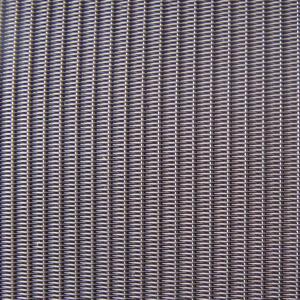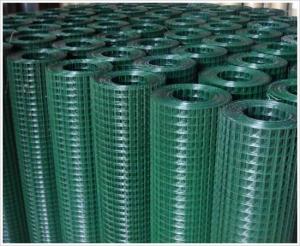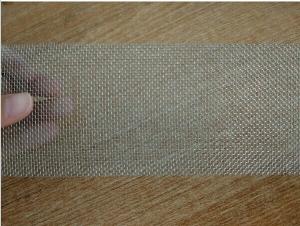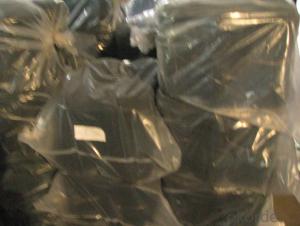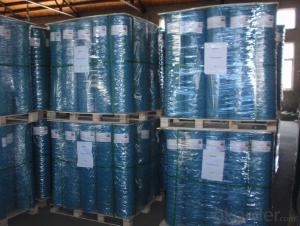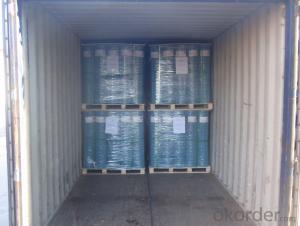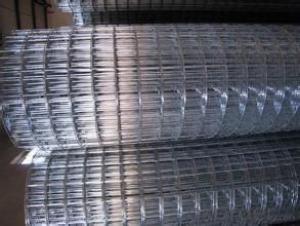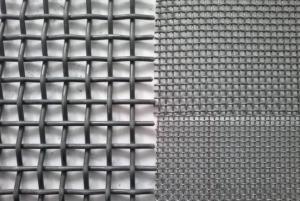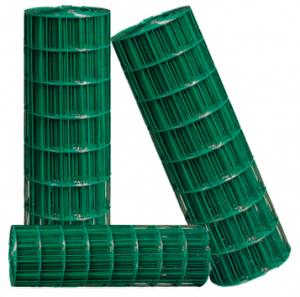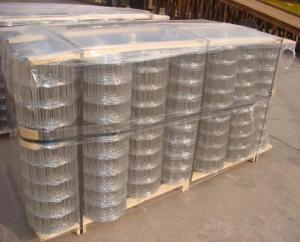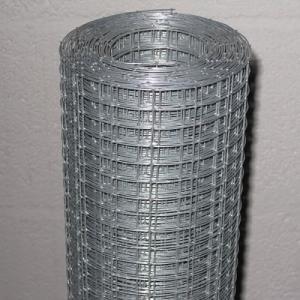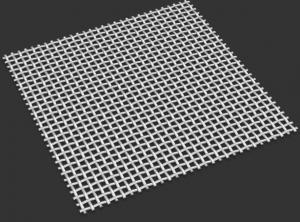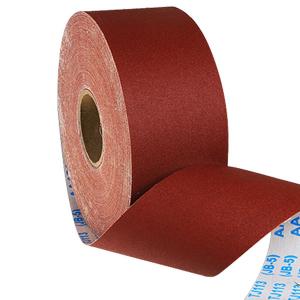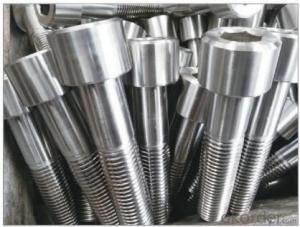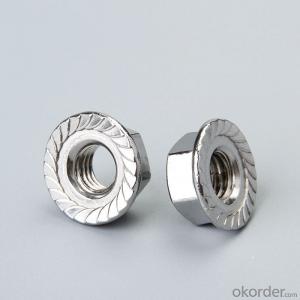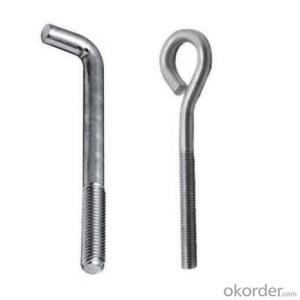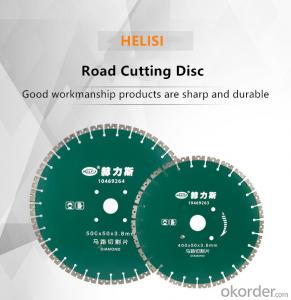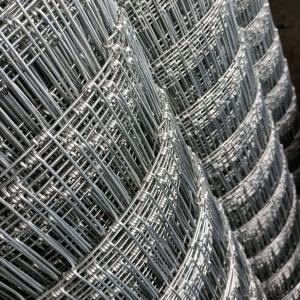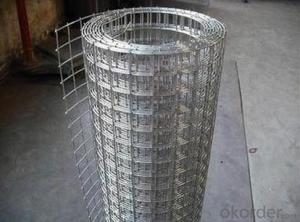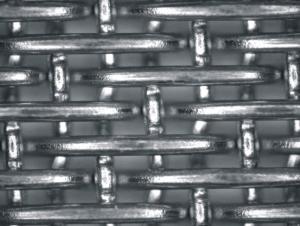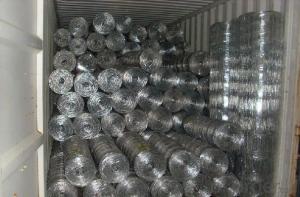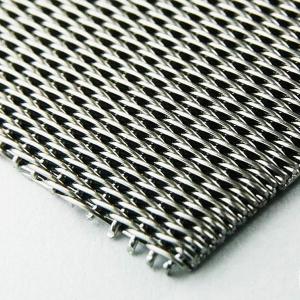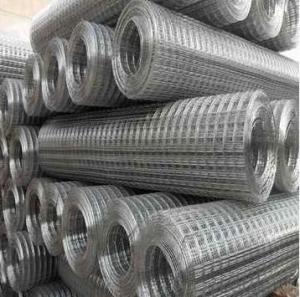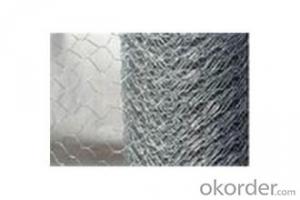Plain Dutch Weave and Twill Dutch Weave Wire Cloth
- Loading Port:
- Tianjin
- Payment Terms:
- TT OR LC
- Min Order Qty:
- -
- Supply Capability:
- 5000 m²/month
OKorder Service Pledge
OKorder Financial Service
You Might Also Like
PlainDutch Weave & Twill Dutch Weave Wire Cloth
PlainDutch Weave & Twill Dutch Weave Wire Cloth Specifications
Thetable below shows the standard specifications for FLS’s Plain Dutch and TwillDutch weave wire cloth.
WEAVE TYPE | MESH COUNT | WARP WIRE | SHUTE WIRE | ABSOLUTE | NOMINAL | WEIGHT |
IN INCHES | IN INCHES | MICRON RATING | MICRON RATING | PER 100 SQ.' | ||
PDW | 8X20 | 0.014 | 0.0126 | 330-350 | 280 | 49 |
PDW | 12X64 | 0.024 | 0.0165 | 270-290 | 200 | 84 |
PDW | 14X88 | 0.02 | 0.013 | 220-240 | 150 | 75 |
PDW | 16X80 | 0.0169 | 0.0134 | 225-235 | 140 | 79 |
PDW | 24X110 | 0.015 | 0.01 | 115-125 | 80 | 55 |
PDW - TWIN WARP | 24X128 | 2 X .010 | 0.004 | 110-120 | 75 | 34 |
PDW | 30X150 | 0.009 | 0.007 | 110-112 | 63 | 33 |
PDW - TWIN WARP | 30X150 | 2 X .009 | .007" | 95-113 | 60 | 33 |
PDW | 40X200 | 0.007 | 0.0055 | 70-75 | 55 | 27 |
PDW | 50X250 | 0.0055 | 0.0045 | 58-63 | 40 | 22 |
PDW | 80X400 | 0.005 | 0.003 | 40-45 | 35 | 17 |
TDW | 30X250 | 0.01 | 0.008 | 110-120 | 53 | 66 |
TDW | 80X700 | 0.004 | 0.003 | 35-40 | 25 | 25 |
TDW | 120X400 | 0.004 | 0.0025 | 50-55 | 40 | 15 |
TDW | 165X800 | 0.0028 | 0.002 | 25-28 | 15 | 14 |
TDW | 200X600 | 0.0024 | 0.0018 | 30 | 20 | 10 |
TDW | 165X1400 | 0.0028 | 0.0016 | 16-20 | 10 | 14 |
TDW | 200X1400 | 0.0028 | 0.0016 | 12-14 | 5 | 15 |
TDW | 325X2300 | 0.0014 | 0.001 | 8-9 | 2 | 10 |
TDW | 400X2800 | 0.001 | 0.0008 | 6-7 | 1 | 8 |
- Q:Can steel wire mesh be used for elevator shafts?
- Yes, steel wire mesh can be used for elevator shafts. It is commonly used as a safety measure to prevent objects from falling into the shaft and to provide structural support. The mesh helps to ensure the safety of passengers and maintenance workers by acting as a barrier and preventing accidents.
- Q:How is steel wire mesh used in marine environments?
- Steel wire mesh is commonly used in marine environments for various applications. One of the primary uses of steel wire mesh in marine environments is for coastal protection. It is often used as a barrier to prevent erosion of beaches and shorelines. The mesh is installed in a way that it acts as a barrier against the force of waves and currents, preventing the loss of sand and soil. Another important application of steel wire mesh in marine environments is for fish farming or aquaculture. The mesh is used to create cages or enclosures in the water, allowing fish to be contained within a certain area while still having access to clean water and sufficient oxygen. These cages are typically made of steel wire mesh due to its durability and resistance to corrosion in saltwater. Furthermore, steel wire mesh is also used for marine safety purposes. It can be employed as a protective barrier around docks, piers, and other structures to prevent accidental falls or unauthorized access. The strong and sturdy nature of steel wire mesh ensures that it can withstand the harsh marine environment and provide effective safety measures. Additionally, steel wire mesh is utilized in marine construction projects. It can be used as reinforcement in concrete structures such as seawalls, breakwaters, and jetties. The mesh provides additional strength and stability to these structures, enabling them to withstand the forces exerted by waves, tides, and currents. Overall, steel wire mesh is a versatile material that finds numerous applications in marine environments. Its strength, durability, and resistance to corrosion make it an ideal choice for various purposes such as coastal protection, aquaculture, marine safety, and construction projects.
- Q:What are the common sizes and dimensions of steel wire mesh?
- There is a wide range of sizes and dimensions for steel wire mesh to cater to different applications and requirements. Here are some common specifications: 1. Mesh Size: Steel wire mesh is categorized based on the number of openings per linear inch, known as the mesh size. It is available in various mesh sizes such as 2, 4, 8, 10, 12, 16, 20, 30, 40, 50, 60, 80, 100, 120, 150, 200, and 400. The finer the wire mesh, the higher the mesh number. 2. Wire Diameter: Steel wire mesh has different wire diameters depending on the application. It can range from thin wires with diameters as small as 0.05 mm (0.002 inches) to thicker wires with diameters up to 6 mm (0.24 inches) or more. Wire diameter is often specified in gauge, with common gauges ranging from 6 to 24. 3. Sheet Size: Standard sheet sizes for steel wire mesh are usually 4 feet (1.2 meters) wide and 8 feet (2.4 meters) long. However, custom sizes can be manufactured to meet specific project requirements. 4. Opening Size: The openings in steel wire mesh can vary depending on the mesh size and wire diameter. Smaller openings are commonly used for fine filtration or insect screening, while larger openings are suitable for applications like fencing or construction reinforcement. Opening size can range from as small as 0.05 mm (0.002 inches) to several centimeters. It is important to note that these dimensions are not exhaustive, and variations in size and dimensions are available to fulfill specific needs. Consulting with a supplier or manufacturer is recommended to determine the most suitable steel wire mesh size and dimensions for a particular application.
- Q:How does the edge finish affect the installation process of steel wire mesh?
- The edge finish of steel wire mesh can greatly impact the installation process. A smooth and clean edge finish allows for easier handling and manipulation of the mesh during installation. It reduces the risk of injuries or damage to the mesh or surrounding structures. On the other hand, a rough or jagged edge finish can make it more challenging to align and secure the mesh properly, potentially leading to uneven or unstable installation. Therefore, a good edge finish is crucial for a smooth and efficient installation process of steel wire mesh.
- Q:What are the different sizes and gauges available for steel wire mesh?
- There is a wide range of sizes and gauges available for steel wire mesh, catering to various applications and requirements. Steel wire mesh comes in different sizes, ranging from small and fine meshes to larger and coarser meshes. These sizes are typically determined by either the number of openings per linear inch or the clear opening size. Some common sizes include 2 mesh, 4 mesh, 8 mesh, 16 mesh, and 30 mesh. In terms of gauges, steel wire mesh is offered in various thicknesses. The gauge of a wire indicates its diameter, with lower gauge numbers representing thicker wires. Common gauges for steel wire mesh span from 6 gauge to 24 gauge, with 10 gauge, 12 gauge, and 14 gauge being frequently used. The choice of the appropriate size and gauge of steel wire mesh depends on the specific application at hand. Fine mesh sizes are typically employed for sifting, filtering, and separating materials, whereas coarser mesh sizes are suitable for applications like fencing, reinforcement, and protection. The selection of the gauge is influenced by factors such as desired strength, durability, and level of visibility required. It is important to note that while these sizes and gauges are standard measurements, custom sizes and gauges can also be manufactured to meet the specific needs of a project. All in all, the availability of different sizes and gauges provides flexibility in selecting the most suitable steel wire mesh for a given application.
- Q:Is steel wire mesh suitable for retaining walls?
- Yes, steel wire mesh is suitable for retaining walls. Steel wire mesh is a strong and durable material that can provide stability and support to retain soil or other materials. It is commonly used in retaining wall construction due to its ability to withstand pressure and prevent soil erosion. Additionally, steel wire mesh can be easily installed and is cost-effective compared to other materials. It also allows for proper drainage, ensuring that water does not accumulate behind the retaining wall and cause damage. Overall, steel wire mesh is a suitable choice for retaining walls, offering stability, durability, and cost-effectiveness.
- Q:Can steel wire mesh be used for air filtration?
- Yes, steel wire mesh can be used for air filtration. Steel wire mesh is a durable and versatile material that can effectively capture and filter out particles in the air. It can be used in various applications such as HVAC systems, industrial filtration units, and even in home air purifiers. The tightly woven structure of the mesh allows air to pass through while trapping and retaining larger particles like dust, pollen, and debris. Additionally, steel wire mesh can be easily cleaned and maintained, making it a cost-effective choice for air filtration systems.
- Q:Can steel wire mesh be used for speaker grilles?
- Yes, steel wire mesh can be used for speaker grilles. It is a commonly used material due to its durability, sound transparency, and ability to protect the speakers while allowing sound to pass through.
- Q:What are the different strength grades available in steel wire mesh?
- Steel wire mesh is available in several different strength grades, each designed for specific applications and load-bearing requirements. The most commonly used strength grades are as follows: 1. Low Carbon Steel (LCS): This grade is widely utilized and provides moderate strength. It is suitable for general-purpose applications like fencing, screening, and reinforcement. 2. High Carbon Steel (HCS): HCS wire mesh contains a higher carbon content, resulting in increased strength and durability. It is commonly employed in heavy-duty applications that demand higher tensile strength, such as construction, mining, and industrial filtration. 3. Stainless Steel (SS): Stainless steel wire mesh is renowned for its exceptional corrosion resistance and high strength. It is often utilized in environments or industries where exposure to harsh chemicals or conditions is expected, such as marine, food processing, and pharmaceutical industries. 4. Galvanized Steel: To enhance its corrosion resistance, galvanized wire mesh is coated with a layer of zinc. It is available in various strength grades and is frequently used in outdoor applications, including fencing, agricultural enclosures, and construction projects. 5. Pre-galvanized Steel: Pre-galvanized wire mesh undergoes a galvanization process prior to weaving, offering similar corrosion resistance to galvanized steel but with a smoother surface finish. This makes it suitable for applications that require a more aesthetically pleasing appearance. 6. Aluminum: Although not technically steel, aluminum wire mesh is worth mentioning due to its excellent strength-to-weight ratio and corrosion resistance. It is commonly employed in applications like architectural designs, decorative screens, and aerospace industries. Selecting the appropriate strength grade of steel wire mesh is crucial and should be based on specific project requirements, including the intended application, load-bearing capacity, and environmental conditions. Seeking advice from knowledgeable professionals or suppliers can ensure the correct grade is chosen for your needs.
- Q:Is steel wire mesh resistant to radiation?
- Indeed, resistance to radiation is a characteristic possessed by steel wire mesh. Renowned for its exceptional strength and durability, steel exhibits the remarkable capability to obstruct or weaken diverse manifestations of radiation, encompassing electromagnetic radiation and ionizing radiation. Consequently, steel wire mesh emerges as a highly efficient substance for safeguarding against radiation within numerous contexts. Enhanced radiation protection is attainable through employment of steel wire mesh featuring augmented density and reduced mesh size. Nonetheless, it is crucial to acknowledge that the efficacy of steel wire mesh in thwarting radiation hinges upon the nature and potency of the radiation source.
1. Manufacturer Overview |
|
|---|---|
| Location | |
| Year Established | |
| Annual Output Value | |
| Main Markets | |
| Company Certifications | |
2. Manufacturer Certificates |
|
|---|---|
| a) Certification Name | |
| Range | |
| Reference | |
| Validity Period | |
3. Manufacturer Capability |
|
|---|---|
| a)Trade Capacity | |
| Nearest Port | |
| Export Percentage | |
| No.of Employees in Trade Department | |
| Language Spoken: | |
| b)Factory Information | |
| Factory Size: | |
| No. of Production Lines | |
| Contract Manufacturing | |
| Product Price Range | |
Send your message to us
Plain Dutch Weave and Twill Dutch Weave Wire Cloth
- Loading Port:
- Tianjin
- Payment Terms:
- TT OR LC
- Min Order Qty:
- -
- Supply Capability:
- 5000 m²/month
OKorder Service Pledge
OKorder Financial Service
Similar products
New products
Hot products
Related keywords
